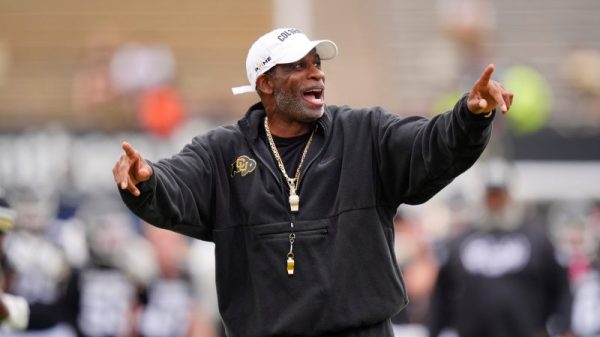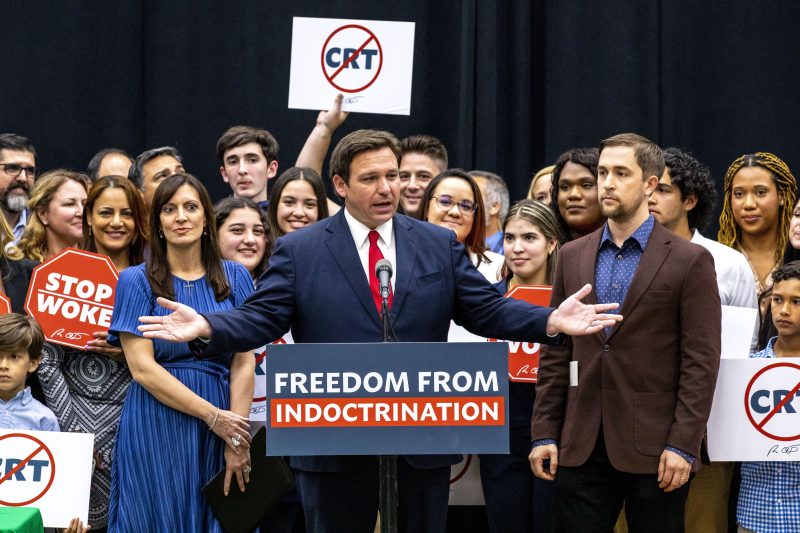The College Board has now released the final version of its curriculum for an Advanced Placement African American Studies course that can be taught in American high schools. The final document extends over 200 pages, detailing week-by-week areas of instruction and opportunities for students to extend their research in the subject.
Normally, such releases are of interest mostly to educators. This particular course, though, has captured national attention, thanks to loud objections offered by Florida Gov. Ron DeSantis (R). Last summer, a draft of the curriculum from February 2022 was obtained by conservative media outlets, leading to broad denunciations of its components as overly liberal or excessively “woke.” DeSantis, always eager to leverage such controversies, used his power as governor to declare his state’s opposition to that initial iteration. The final product eliminated many of the points of criticism, and DeSantis’s allies and supporters are eager to give him credit.
That credit isn’t really due to DeSantis, as you’ll see in a moment. But this pattern defines DeSantis’s approach to Republican politics: He seizes a controversy that’s energizing the right-wing base and tries to make it his own. Never mind if it raises significant questions about government intrusion on speech or, say, involves shipping impoverished, unsuspecting migrants to an island unprepared for their arrival. In the end what matters is being able to claim victory.
There is no question that the AP curriculum published by the College Board is now devoid of the more controversial elements from the draft. Discussions of intersectionality and Black LGBTQ issues, reparations for slavery and Black Lives Matter were punted to a section called “Sample Project Topics” — things students could explore separately. Mentions of writers who trigger right-wing backlash, like Ta-Nehisi Coates, were removed from the document entirely.
It’s important to note that the outrage over that draft curriculum, though, often overstated the extent to which controversial topics were included. The draft curriculum, like the final version, includes four broad instructional units, each with dozens of individual subjects of discussion. In each version, for example, Unit 3, topic 17 is “The Great Migration,” the northward movement of Black Americans after the Civil War and during Jim Crow.
The outrage over the inclusion of a discussion of LGBTQ Black Americans centered on one of 32 topics in the draft’s Unit 4 — hardly a central focus of the proposed curriculum. But it’s easy to cherry-pick things to get mad about from a lengthy document, as when an observer complained about having discovered that an author mentioned as a potential secondary source for students to review “was once a Trotskyite.” Sometimes criticisms require completion of an entirely separate AP curriculum.
To The Washington Post, the College Board denied that the course was changed in response to DeSantis. That seems almost certain to be true, given that the draft was released in February 2022 and the final, polished version appeared less than two weeks after DeSantis’s public objections. But it also seems clear that the curriculum was changed to soften the sorts of objections that it had faced since the summer. Perhaps the experts who consulted with the College Board all agreed that Black Lives Matter didn’t deserve isolation in its own topic area. Or perhaps it was decided that it was easier to move forward without courting such controversies.
If the latter, the triumph here belongs to the political right broadly. There has been a multiyear campaign to frame discussions of race in schools as toxic, dangerous or un-American. This usually occurs under the umbrella of “critical race theory,” a phrase for which the definition has been intentionally ballooned outward to include nearly anything that mainstream, White Americans might find distasteful. This was an element of Donald Trump’s 2020 campaign but soared in Fox News coverage in 2021, powered by right-wing activists such as Chris Rufo. So DeSantis took up the mantle. (Last month, he appointed Rufo to a leadership position at a state college in Florida.)
What’s that expression about the fervor of the convert? DeSantis has made battling “wokeism” a key part of his administration, signing into law a bill called the Stop Woke Act that limited how schools could teach about race. Education has been a particular focus of DeSantis, with his administration celebrating whatever victories it can obtain. Last April, he took a victory lap when the state blocked a number of math books that his team claimed contained “critical race theory,” though that was a wild misrepresentation of the books’ contents. More recently, state educators had to remove books from classrooms or hide them from view until their bookshelves could be evaluated for compliance with administration orthodoxy, including on issues of race.
This isn’t happening only in Florida. A survey of educators found that a quarter had altered their curriculums to comply with new restrictions on content. But DeSantis is eager to have Florida be seen as the leader in this regard. He views discussions of things like systemic racism as inappropriate for classrooms, instead advocating for a civics curriculum including an idealized depiction of race in America. This comes from a governor who opposed extending the franchise to a ex-felons, a disproportionately Black group, and who created an “election fraud” law enforcement body that arrested a number of Black Floridians for voting despite felony convictions.
There are multiple other hypocrisies here. The governor claims to be acting in support of free speech as he leverages state power to restrict or uproot lessons that disagree with his own politics. At the same time, he calls for congressional hearings into a private company’s decision to end its relationship with a right-wing cable channel. The central theme is what appeals to Republican and right-wing audiences, the sorts of people who might end up voting in a Republican presidential primary.
Again, if anyone can claim credit for altering the College Board’s curriculum, it’s the right wing at large. This particular Black History Month kicks off with a clear victory in the effort to depict Black history in a very narrow, very specific context. But DeSantis has positioned himself well to seek a piece of that credit, and recent history suggests that he or his supporters won’t hesitate to do so.



























